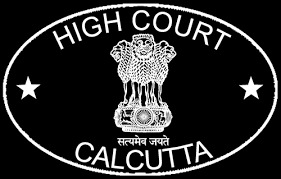Rajendra Chandra Singh Samant, J
1. Both these Criminal Revisions arise out of the same order dated 26.03.2018, passed in M.J.C. No.25 of 2018, dismissing the application under
Section 127 Cr.P.C. filed by the applicant and in M.J.C. No.24/2018.
2. The applicant and the respondent were married to each other, who are now divorced. The applicant had earlier filed an application under Section
125 Cr.P.C., which was registered as M.J.C. No.71 of 2010, in which vide order dated 02.05.2010, the order was passed by the Family Court
granting maintenance of Rs.3,500/- to the applicant to be paid by the respondent every month. At the subsequent stage, the applicant- Maya
Kashyap filed an application under Section 127 of Cr.P.C. which is M.J.C. No.25 of 2018 praying for enhancement in the amount of maintenance
granted and respondent filed an application under Section 125(4) of Cr.P.C. that applicant is now living in adultery and further, she herself is
earning livelihood and capable to maintain herself, therefore, the applicant has lost entitlement for grant of maintenance. Both these applications
have been decided by the impugned order in which the prayer of the respondent under Section 125(4) of Cr.P.C. was allowed and on that basis, the
order dated 02.05.2010 in M.J.C. No.71 of 2010 has been set aside.
3. It is submitted by the learned counsel for the applicant that the order of maintenance was passed in the year 2010, subsequent to which, because
of the rise in the price index and inflation, the applicant has entitlement for enhancement maintenance. The learned Family Court has not
appreciated the same and committed error in the holding that the applicant is not entitled for enhancement in maintenance.
4. It is further, submitted by the learned counsel for the applicant that the order of maintenance in favour of the applicant could not have been
assailed by the respondent under Section 125(4) of Cr.P.C., it is now the fact that the applicant and the respondent are now divorced. Therefore,
there is no requirement on the part of the applicant to remain faithful to the respondent.
5. Reliance on the judgment of Supreme Court in the case of Vanamala (Smt.) Vs. H.M. Ranganatha Bhatta reported in (1995) 5 SCC 299, in
which the Supreme Court has held that the word 'wife' mentioned in Section 125 (4) of Cr.P.C. does not have the extended meaning of including a
woman who has been divorced. Therefore, when the relationship of husband and wife is no longer existing. Then, such a question cannot be raised,
that a divorcee woman is living an adulterous or she is living separately without sufficient cause. It is further submitted that the facts brought to the
notice of the Court by the respondent may indicate an affair but does not indicate that the applicant has remarried, therefore, her entitlement for
maintenance is continuing. It has been similarly held by the Supreme Court in the case of Gurmit Kaur Vs. Surjit Singh @ Jeet Singh reported in
1996 SCC (1) 39. Therefore, the order impugned is erroneous and liable to be set aside. Prayer has been made to allow the revision in both the
cases and grant relief to the applicant.
6. Learned counsel for the respondent opposes the submissions and submits that it had been the ground of contest of the respondent from the very
beginning that the applicant is living an adulterous life. However, the proceeding under Section 125 of Cr.P.C. terminated on the basis of a
compromise. The Section 125 (4) of Cr.P.C. is applicable to a divorced wife also. In explanation 'b' of Section 125(1) of Cr.P.C., it is provided that
“the 'wife' includes a woman who has been divorced by, or has obtained the divorce from her husband or has not remarried.†Therefore, the
applicant still has the status of wife of the respondent according to this definition. Hence, until and unless, she gets remarried, she has to maintain
her dignity and live a chaste life.
7. Reliance has been placed on the judgment of Madras High Court in the case of M. Chinna Karuppasamy vs. Kanimozhi reported in 2015
Cri.L.J. 4523, in this case in the judgment of Supreme Court in the case of Vanamala (Smt.) Vs. H.M.Ranganatha Bhatta (Supra) has been
referred under distinguished, therefore, in view of this legal position, the applicant has no entitlement for grant of any maintenance, the impugned
orders in both the cases are sustainable.
8. In reply, it is submitted by the learned counsel for the applicant in both the cases that the entitlement of the applicant is a continuing one. Any
High Court cannot go beyond the ratio that has been laid down by the Supreme Court, therefore, the judgment of Madras High Court is per curiam,
which cannot be considered as a precedent. Hence, the applicant is entitled for grant of relief.
9. Considered on the submissions. The Supreme Court has in the case of Vanamala (Smt.) Vs. H.M. Ranganatha Bhatta (Supra) observed in
paragraph 3 as follows:-
“Section 125 of the Code makes provision for the grant of maintenance to wives, chaildren and parents. Sub-section (1) of section 125 inter alia
says that if any person having sufficient means neglects or refuses to maintain his wife unable to maintain herself, a Magistrate of the first class
may, upon proof of such neglect or refusal, order such person to make a monthly allowance for the maintenance of his wife not exceeding Rs.500/-
in the whole, as such magistrate thinks fit, and to pay the same to such person as the Magistrate may from time to time direct. Clause (b) of the
explanation to the sub-section defines the expression 'wife' to include a woman who has been divorced by, or has obtained a divorce from, her
husband and has not remarried. In the instant case it is not contended by the respondent that the appellant has remarried after the decree of divorce
was obtained under Section 13-B of the Hindu Marriage Act. It is also not in dispute that the appellant was the legally wedded wife of the
respondent prior to the passing of the decree of divorce. By virtue of the definition referred to above she would, therefore, be entitled to
maintenance if she could show that the respondent has neglected or refused to maintain her. Counsel for the respondent, however, invited our
attention to sub-section (4) of Section 125, which reads as under:-
125.(4) No wife shall be entitled to receive an allowance from her husband under this Section if she is living in adultery, or if, without any sufficient
reason, she refuses to live with her husband, or if they are living separately by mutual consent.
On a plain reading of this Section it seems fairly clear that the expression 'wife' in the said sub-section does not have the extended meaning of
including a woman who has been divorced. This is for the obvious reason that unless there is a relationship of husband and wife there can be no
question of a divorcee woman living in adultery or without sufficient reason refusing to live with her husband. After divorce where is the occasion
for the women to live with her husband? Similarly there would be no question of the husband and wife living separately by mutual consent because
after divorce there is no need for consent to live separately. In the context, therefore, sub-section (4) of Section 125 does not apply to the case of a
woman who has been divorced or who has obtained a decree for divorce. In our view, therefore, this contention is not well founded. “
10. As held by the Supreme Court, the definition of 'wife' in explanation (b) of Section 125 (1) of Cr.P.C. has been incorporated according to
which, the the word 'wife' mentioned in the sub Section (1) does not have the extended meaning of including a woman, who has been divorced,
therefore, the status of the applicant has now become of a divorced woman. In the case of M. Chinna Karuppasamy vs. Kanimozhi (Supra), the
Single Judge of Madras High Court has made a reference to the judgment of Vanamala (Smt.) Vs. H.M. Ranganatha Bhatta (Supra), but has not
followed the ratio and made the distinction on the ground, that the decree of divorce was obtained by the husband on the ground that the wife was
living an adulterous life. In the present case, the decree of divorce has been obtained by the applicant and the respondent under Section 13(b) of
Hindu Marriage Act, which is the decree of divorce was granted on mutual consent. Hence, in this case, there is no such proof that at the time, the
marriage of the applicant and the respondent was subsisting, the applicant had committed any adulterous act, hence, the ratio laid down by the
Supreme Court in Vanamala (Smt.) Vs. H.M. Ranganatha Bhatta (Supra) is clearly applicable in this case. The impugned order allowing the
application by respondent under Section 125(4) of Cr.P.C. is totally erroneous which is liable to be set aside.
11. As regard, the finding of the Family Court on the question of enhancement, it is found that this finding is based only on the allegation of the
adulterous conduct of the applicant. The matter was inquired, the respondent examined himself in the proceeding, in which he has not made a single
statement against the prayer made by the applicant in her application under Section 127 of Cr.P.C. On the contrary, he has admitted in his cross-
examination that at present, he is receiving a monthly salary of Rs.40,000/- which is gross salary and his net salary is about Rs.22,000/-per month.
The applicant has examined herself in M.J.C. No.25/2018, in which she has stated that the applicant is getting a monthly salary of Rs.34,597/- per
month, who is employed in P.W.I., Raipur. She has admitted that she has not produced any salary slip and admitted about the Ex.D/2, which
mentions the gross pay of her husband, the respondent to be Rs.25,490/-. The learned Family Court has failed to examine this aspect present in the
case. There is no such evidence that the applicant has any earning capacity. It is not the case of the respondent that the applicant has remarried
and the applicant herself claim that she was not remarried, therefore, her entitlement for maintenance is continuing. On this basis and according to
the evidence present, that the inflation and rise in price index cannot be ignored looking to the time that has lapsed after the order of maintenance
that has been passed almost 10 years ago. Further, considering on the submissions made by the respondent side about the present pay structure, it
can further be concluded, that the respondent has the capacity to pay the enhanced maintenance. Hence, after due consideration on all the
submissions and the facts of the case and the conclusions that have been drawn hereinabove, both the Revision Petitions are allowed. The
application of the respondent filed under Section 125(4) of Cr.P.C. in M.J.C. No.24/2018 which has been allowed by the impugned order, is set
aside and the application under Section 125(4) of Cr.P.C. is rejected. The impugned order on application under Section 127 of Cr.P.C. filed by the
applicant in M.J.C. No.25/2018 is also set aside and it is ordered that the respondent shall now make payment of Rs.4000/-per month to the
applicant. This payment shall be made from the date, the application under Section 127 of Cr.P.C. was filed by the applicant. Both the Revision
Petitions are hereby disposed off.

